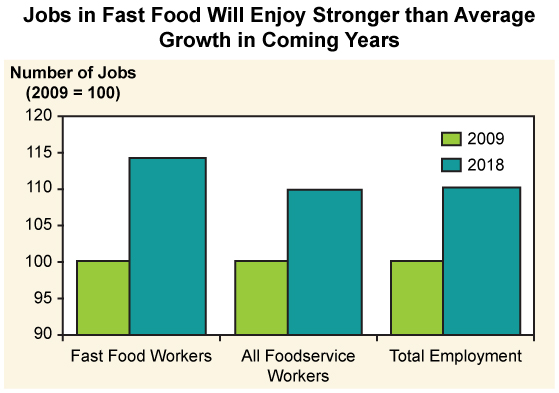Lesson One - Groups and Organizations
1.3 Formal Organizations
Making Connections: Real World
Secrets of the McJob
We often talk about bureaucracies disparagingly, and no organizations have taken more heat than fast-food restaurants. The book and movie Fast Food Nation: The Dark Side of the All-American Meal by Eric Schossler (2001) paints an ugly picture of what goes in, what goes on, and what comes out of fast-food chains. From their environmental impact to their role in the U.S. obesity epidemic, fast-food chains are connected to numerous societal ills. Furthermore, working at a fast-food restaurant is often disparaged, and even referred to dismissively, as a McJob rather than a real job.
But business school professor Jerry Newman (2007) went undercover and worked behind the counter at seven fast-food restaurants to discover what really goes on there. His book, My Secret Life on the McJob, documents his experience. Newman found, unlike Schossler, that these restaurants have much good alongside the bad. Specifically, he asserted that the employees were honest and hard-working, the management was often impressive, and the jobs required a lot more skill and effort than most people imagined. In the book, Newman cites a pharmaceutical executive who states that a fast-food service job on an applicant’s résumé is a plus because it indicates the employee is reliable and can handle pressure.
So what do you think? Are these McJobs and the organizations that offer them still serving a role in the economy and people’s careers? Or are they dead-end jobs that typify all that is negative about large bureaucracies? Have you ever worked in one? Would you?
